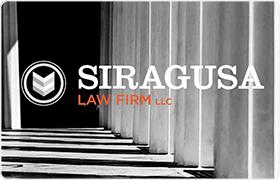Glen Ridge Family Law Lawyer, New Jersey
Sponsored Law Firm
-
 x
x

Click For More Info:
-
Siragusa Law Firm LLC
678 Route 202/206 Building 5, Suite 5 Bridgewater, NJ 08807» view mapDivorce & Family Law Creative Thinking. Exceptional Results.
At Siragusa Law Firm, we take our responsibility seriously. We are passionate about helping you, making sure to guide you through whatever legal matter you face.
908-218-1100
Includes: Collaborative Law, Domestic Violence & Neglect, Paternity, Prenuptial Agreements
Christopher Raymond Fritz
✓ VERIFIEDDivorce & Family Law, Criminal, Lawsuit & Dispute, Family Law
Introducing Christopher Fritz: A Resolute Advocate for Divorce and Family Law in New Jersey. In the realm of divorce and family law, one name stand... (more)
Joseph A. Vena
Business Organization, Estate Planning, Family Law, Land Use & Zoning
Status: In Good Standing
W. Thomas McDonough
Family Law, Medical Malpractice, Banking & Finance, Wills & Probate
Status: In Good Standing
FREE CONSULTATION
CONTACTSusan A. McCurrie
Election & Political, Family Law, Wills & Probate, Civil Rights
Status: In Good Standing
Deborah A. Concepcion
Divorce & Family Law, Domestic Violence & Neglect, Divorce, Personal Injury
Status: In Good Standing Licensed: 33 Years
Nicholas Brindisi
Real Estate, Family Law, Bankruptcy, Personal Injury
Status: In Good Standing Licensed: 45 Years
 Lynette Siragusa Bridgewater, NJ
Lynette Siragusa Bridgewater, NJ Practice AreasExpertise
Practice AreasExpertise

